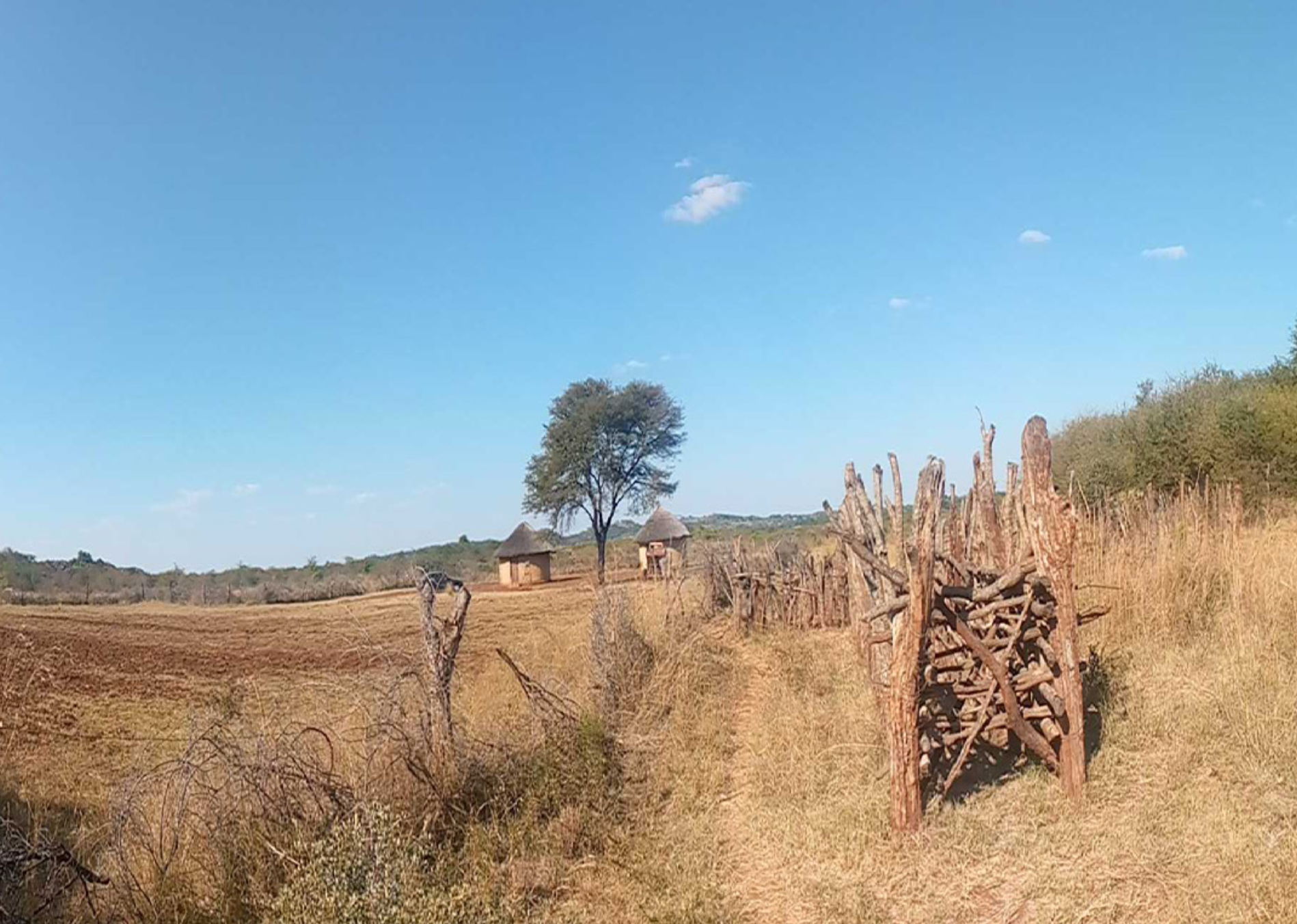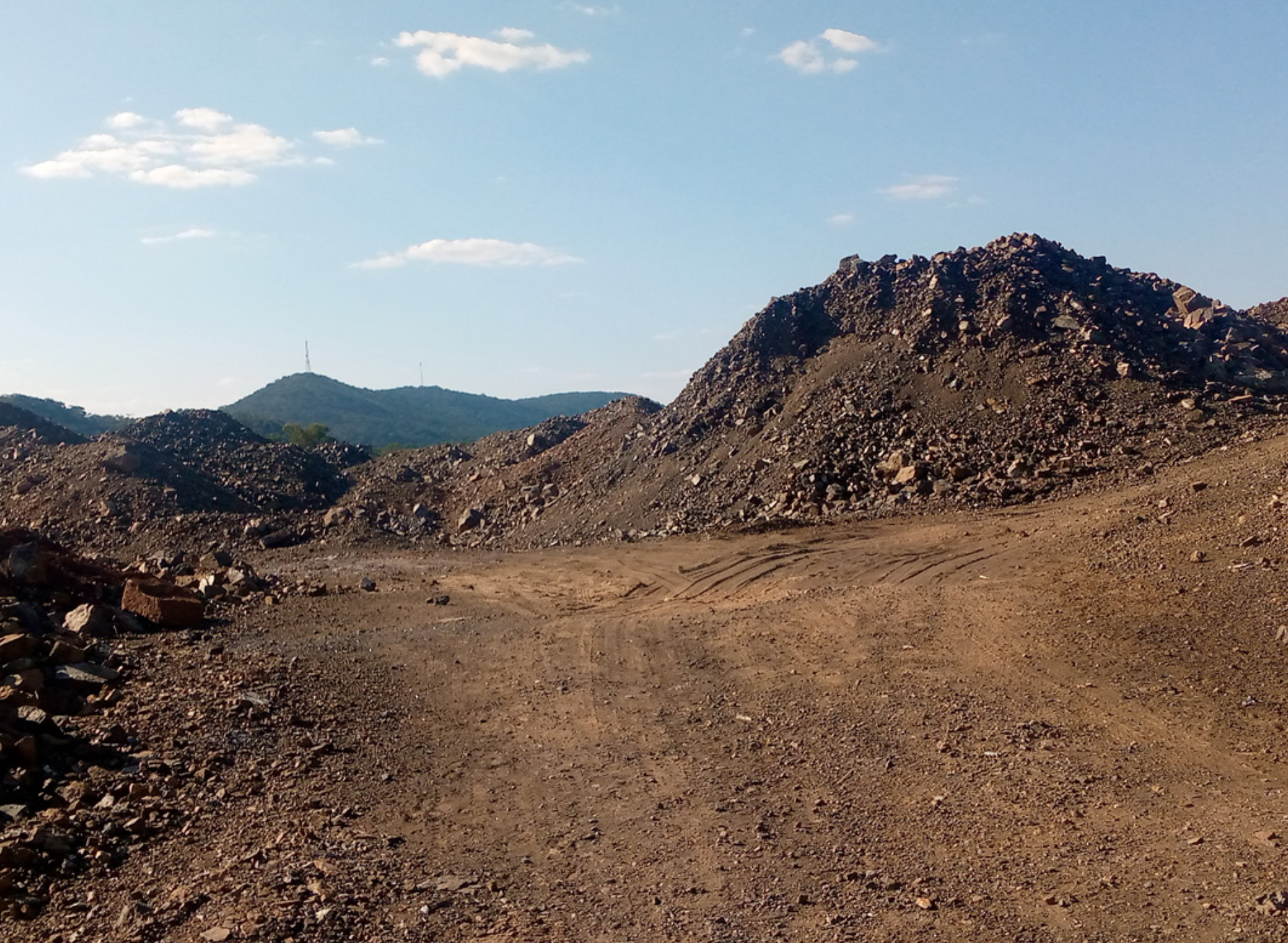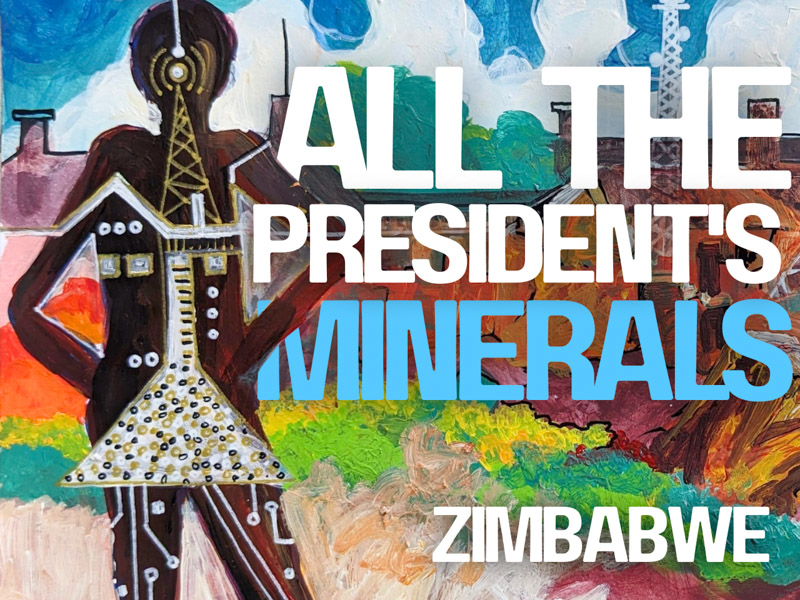All the president’s minerals
While many reports expose how multinationals have appropriated natural wealth on the cheap, polluted communities, and exploited workers, the facilitation of it all by powerful African political elites has not been highlighted as much. Zimbabwe’s chapter of ZAM’s new transnational investigation into Africa’s Sell-Outs, focuses on the mining businesses that are controlled by the country’s ruling party, ZANU PF.
One cannot really go near most mining sites in Zimbabwe. Armed security men guard even the surrounding areas, and you wait for sources to tell you that now, if ever, it might be safe. When you do manage to get close, you hear stories of the relocation of farming communities—carried out amid promises of a better life elsewhere—sometimes of outright dispossession, and inevitably, of pollution. But mostly, you simply see the caterpillars on the horizon, digging away at the mountains, without knowing who is in charge or where it all goes. “You can find out the ownership of these anonymous companies, but it’s risky,” an expert source told me in the run-up to this investigation. “Because most of these will end up linked to the president.”
Mining licenses
According to a recent legal report, the president’s office has ultimate control of mining rights in Zimbabwe. The applications processing is formally done by the Ministry of Mines, which should assist those who follow the prescribed bureaucratic route for licenses and permits, and this should, according to existing laws, eventually lead to an official nod from the presidency. But several sources stated, when asked, that people without connections to ZANU PF’s and the president’s inner circles “don’t stand a real chance”.
Unconnected people don’t stand a chance
Desmond Kanungu (47) for example, waited for years, trying from his residence in the UK to pursue a potential mining venture in his village of birth. He applied for prospecting, special granting, mining leasing and small-scale mining licenses; he submitted pre-application research, land identification and verification papers, surveys and ownership records. But he “became frustrated”, he says telephonically. “I had had high hopes to invest in my country, employ people and make a difference. However, I was sent from one office to the other, spending a lot of money. After some time, I had to give up.”

China
Licenses tend to more easily emanate from business conferences attended by ZANU PF ruling party representatives, such as at the three-yearly China-Africa Cooperation summit, -held in 2021 online due to COVID, but resumed in 2024 in Beijing, about which state mouthpiece The Herald headlined that the “Zanu PF delegation (was) back from China with optimism for investment”.
In the case of the recent wave of digging for lithium, -the new craze in fuel mining, now happening in at least five sites across the country-, substantial investment has indeed come from Chinese companies, predominantly Zhejiang Huayou Cobalt, Tshingshan, the Sinomine Resource Group, and Chengxin Lithium.
These companies are not anonymous, far from it: they are often the target of criticism for environmental and other destruction in the nearby communities. Entire studies and reports of village complaints about ‘the Chinese’ have been published in Zimbabwe, most comprehensively in a 2023 report by the Independent Development Trust (IDT), that listed pollution, forced removals, loss of cows, bribery of local chiefs, and unsafe labour practices.
Anonymous partners
It is criticism that these companies are known to, largely, ignore. However, the ‘anonymous companies’ the source above referred to are not the Chinese, but the local partners of these entities: Zimbabweans, who hold shares and powerful positions, not just in their business alliances, but in the areas where the mining takes place and often in the country. Sometimes a tip of the veil is lifted: for example, last year, a Zimbabwean news site reported that the owner of Sabi Star, Chengxin’s partner in lithium mining in Buhera, 200+ kilometers south of the capital Harare, is president Mnangagwa’s son Collins. It quoted Chengxin general manager, Simon Karimanzira, as saying that “My chairman, engineer Collins Mnangagwa, is a person who has people at heart and strives to uplift them”. (1)
In Bikita, more towards the east, Chinese Sinomine partners with Bikita Minerals, in which, according to the NGO Environmental Justice Atlas, former ZANU PF’s Energy and Power Development Minister Dzikamai Mavhaire has been listed as the second major shareholder (21% shares in 2017, 16% in 2019), and also as a board member and a chairman for over 15 years while many of Bikita’s top employees are, according to the NGO, “high ranking ZANU PF members”.
The business mogul advises the president
In the Sandawana lithium mine at Mberengwa, president Mnangagwa’s home area in the Midlands province south of Harare, the company in charge since January 2023 is Zimbabwe’s powerful local mining house Kuvimba, which is linked to ZANU PF’s business mogul Kudakwashe Tagwirei. Since September 2024, the company, -now owned by the country’s Mutapa Investment Fund, see below-, is partnering with Zhejiang Huayou Cobalt and the Tsingshan Holding Group. The mining in Goromonzi, about 80 kilometers southeast of Harare, by Prospect Lithium Zimbabwe which partners there with Zhejiang Huayou Cobalt, is also done in collaboration with Kuvimba. At the opening of the US$300 million lithium plant in July 2023, president Emerson Mnangagwa himself was in attendance.
Kuvimba’s powerful mover and shaker Kudakwashe Tagwirei has been a trusted advisor of Mnangagwa ever since the privatisation of Zimbabwe’s state mining agency, the Zimbabwe Mining Development Corporation, in 2018. In that year, -one year after the coup executed by current president Mnangagwa against his predecessor Robert Mugabe in 2017-, the ZMDC announced “viability problems” around operational costs and mounting debts and opened its mining assets up to private bids. Two years later, after the first 151 bidders who had come forward had all been deemed of “poor quality” by the government, virtually all ZMDC’s assets were given to companies associated with Tagwirei. His Landela Mining won the right to the ZMDC's gold assets and the Sandawana lithium mine, while ZMDC joint venture operations were established with Sakunda (Pvt) Ltd, Kuvimba Mining (Pvt) Ltd, and a few others.
The only major non-Tagwirei company in the above list was South African Tumagole, which now owns 85 percent of methane exploration in Zimbabwe, with the ZMDC controlling 15 percent. Thapelo Tshepe, the owner of Tumagole is a close ally of individuals in ZANU PF’s ‘sister’ liberation movement the ANC.
The privatisation was a “give-away bonanza”
A former state official who worked in the ZMDC’s accounts department at the time recalls that “the takeover of the mines by some individuals was like a giveaway bonanza, since they acquired them almost for a song, and there was a general lack of transparency. Even the communities were unhappy because it meant a change of ownership and resulted in job losses.”
Important military allies
A detailed 2021 report by The Sentry revealed that Tagwirei had been discussing mining projects with key military allies of Mnangagwa since 2018. When the US Treasury announced sanctions against Tagwirei in 2020, it stated that “since former Zimbabwe President Robert Mugabe’s 2017 departure, Tagwirei used a combination of opaque business dealings and his ongoing relationship with President Mnangagwa to dramatically grow his business empire and rake in millions of U.S. dollars.”
The largest asset in this empire is the Kuvimba Mining House. While Landela and Sakunda are formally known to be Tagwirei’s companies, the businessman has always denied being part of Kuvimba. However, Bloomberg reported in 2021 that “previously unreported documents, emails and WhatsApp messages seen by Bloomberg (…) show how, through a complex series of transactions, the mining assets that form the core of Kuvimba’s holdings were until recently owned by or tied to Kudakwashe Tagwirei.”. Zimbabwe’s News Hawks revealed in 2024 that Zimbabwe’s state sovereign wealth fund, Mutapa Investment Fund, paid US$1.6 billion in Treasury Bills to acquire 35% of Kuvimba Mining House Ltd from a “management consortium.” The implication is that Tagwirei, through Kuvimba, received US$1.6 billion to relocate the assets to the Mutapa Investment Fund. In the same article, Tagwirei once again denied having anything to do with Kuvimba.
Tagwirei’s rise in Zimbabwe’s mining sector may well stem from knowing how to share—and with whom. According to The Sentry, in 2019, his company Landela Mining Ventures “paid millions of dollars to a Zimbabwean military-owned company so that Landela Mining Ventures, a company controlled by Tagwirei, could purchase 50% of Great Dyke Investments (GDI), a platinum mine worth hundreds of millions and operated as a joint venture with a Russian firm.” The report added that the payment raised concerns about “off-budget financing of Zimbabwe’s abusive and partisan military.”
Complaints were “muzzled by local leaders”
On a lower level, sharing may still be the key mechanism used to keep the locals quiet. Several sources in the Bikita and Buhera mining communities said that complaints about environmental degradation and loss of farmland were “muzzled” by local leaders and that there were rumours these leaders were ‘benefiting’ with “a lot of dirty money changing hands, because the villagers have protested before, but we are powerless and lack knowledge on how to fight these people.” Some of the grievances were also noted by the IDT report on Chinese mining mentioned above: the 2023 study mentioned that Chengxi Mining repaired a chief’s and local Zanu PF vehicles and that the same company “was requested to assist in the construction of an office for Zanu PF-linked war veterans in Shurugwi.” Locals also told the IDT team that Dore Green Customs Milling, a Chinese gold mining operation, had provided “free transport” to locals to vote in elections.

A local activist, speaking to ZAM, expressed anger at the “dubious entities who ravage the areas without leaving anything for the locals,” adding, “This starts from the top. Whenever you hear prominent names mentioned in dirty deals, there is nothing you can do.”
According to recent news reports, President Emerson Mnangagwa is positioning Kudakwashe Tagwirei to succeed him in the 2028 elections.
Lithium and poverty
According to the Zimbabwe Investment and Development Agency, Chinese applications pledged US$944 million in investments in the country in the first quarter of 2023, compared to US$166 million by US investors, and smaller amounts by Russian and Belarusian companies. Over a third of these investment licenses, 42 out of 116, were given to lithium companies. In the third quarter of 2023, Chinese investors were reported to hold two-thirds of the lithium licenses dispensed. https://worldview.stratfor.com/situation-report/zimbabwe-china-invest-28-billion-lithium-energy-projects According to the Maxinomics Economic World Atlas, over 38% of the Zimbabwean population lives in poverty in 2025.
Notes
(1) Media reports in Zimbabwe recently linked another son of president Mnangagwa, Sean, to a waste management deal with an Albanian company that reportedly earns US$ 14,6 million per year for garbage collection in Harare, an activity that citizens complain is not taking place. See Hopewell Chin’ono's X post and All Africa.
The name of author Mukudzei Madenyika is a pseudonym, used for safety reasons. In the story, Desmond Kanungu's name has been changed upon request.
Zimbabwe’s Ministry of Mines and Mining Development was sent detailed requests for comment, but did not respond in the week before publication of this story. Zimbabwe’s president’s office, part of the Zimbabwe government website Zim.gov.zw, has no functional contact facility. No response was received to a tweet sent to ruling ZANU PF party on X, which requested contact for the purposes of comments to this story.
See the instalments in this Transnational Investigation here
Sell Outs | The patrons who make the deals about their countries
Zambia | A corrupt political class
Mozambique | Government captured by lobbyists
The Gambia | Fighting the businessmen who erode the wetlands
DRC | Manono's Lithium Millionaires
Call to Action
ZAM believes that knowledge should be shared globally. Only by bringing multiple perspectives on a story is it possible to make accurate and informed decisions.
And that’s why we don’t have a paywall in place on our site. But we can’t do this without your valuable financial support. Donate to ZAM today and keep our platform free for all. Donate here.


